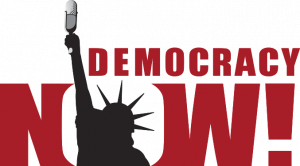
By Travis Waldron
The HuffPost (1/1/19)
RIO DE JANEIRO — The tanks began to roll into Rio de Janeiro on the morning of April 1, 1964, some of them from the neighboring state of Minas Gerais, others from São Paulo. The Brazilian capital had moved to Brasília, the new planned city in the country’s interior, a few years prior, but Rio remained the effective center of power, and somewhere in the city, President João Goulart was clinging to power.
Goulart, a leftist who became president in 1961, had spent the days prior on the phone with a top military officer, Gen. Amaury Kruel. The general was hoping to prevent the collapse of Brazil’s government by urging Jango, as Goulart was known to Brazilians, to fire prominent leftist officials and institute a slate of reforms that would please both the military and the centrist establishment in Congress that opposed Goulart’s shifts to the left.
Goulart refused. The military marched.
By the next morning, Goulart had fled to Porto Alegre. A few days later, he was in Uruguay. Brazil’s democracy had collapsed.
Far-right president Jair Bolsonaro is a threat to Brazilian democracy — and a model for authoritarianism that leaders around the world will follow.
Five decades later, on the evening of Oct. 28, 2018, members of the Brazilian military were parading through the streets of Rio again. Green Army jeeps honked their horns and flashed their lights; soldiers standing atop them waved Brazilian flags as adoring crowds cheered their arrival.
This time, though, the military was not coming to depose a president, but to celebrate him. Jair Bolsonaro, a federal congressman and former Army captain, had just won the election to become Brazil’s 38th president.
“What a nightmare,” Argentine journalist Diego Iglesias tweeted in Spanish of the scene.
Incapable and corrupt
Bolsonaro, whose presidency will begin with a New Year’s Day inaugural ceremony in Brasília, has routinely praised Brazil’s military dictatorship, which gave way to the return of democratic governance in 1985. And his rise to power shares many similarities with the military regime’s: Bolsonaro has seized on widespread discontent and fatigue with an incapable and corrupt political establishment, on fervid opposition to a leftist party that had spent more than a decade in power, on an economic collapse that Brazil has only slowly begun to escape, and on rising levels of violent crime.
And while he has pitched his surge to power as the result of a “populist” revolt, his base of support mirrors that of the old coup masters: wealthy financial elites …
- ‘You Are Courting a Fascist’: U.S. Sec. of State Pompeo Gives Inauguration US Blessing as Brazilians Brace for ‘Repugnant’ Bolsonaro — While progressives, women’s rights advocates, journalists, and the LGBTQ community were among the many mourning Brazilian President Jair Bolsonaro’s inauguration on Tuesday, U.S. Secretary of State Mike Pompeo angered critics with a celebratory tweet congratulating the proud misogynist who has defended Brazil’s former military dictatorship and vowed to crush the country’s leftist opposition during his first speech as president. Pompeo tweeted that he was “looking forward to witnessing the peaceful transfer of power in one of Latin America’s strongest democracies,” as international observers warned that Bolsonaro’s presidency is likely to usher in a new era of fascism. … Read the Rest
*****
A Disaster For Brazil: Noam Chomsky On Brazil’s New Far-Right President Jair Bolsonaro

Democracy Now! (12/31/18)
As Brazil’s President-elect Jair Bolsonaro prepares to take office on Tuesday [1/1/18], we return to our conversation with world-renowned political dissident, linguist and author Noam Chomsky shortly after the election.
Bolsonaro’s impending presidency marks the most radical political shift Brazil since military rule ended more than 30 years ago. Bolsonaro is a former Army officer who has praised Brazil’s former military dictatorship, spoken in favor of torture and threatened to destroy, imprison or banish his political opponents. Bolsonaro has also encouraged the police to kill suspected drug dealers, and once told a female lawmaker she was too ugly to rape. Noam Chomsky calls Bolsonaro a “disaster for Brazil.”
Link to Story, Transcript and 14-Minute Video
*****
The Uncontacted Tribes Of Brazil Face Imminent Genocide Under Jair Bolsonaro
The majority of the world’s 100 or so uncontacted tribes live in the Brazilian Amazon.
By Fiona Watson
The Guardian (12/31/18)
On 1 January, Jair Bolsonaro will be sworn in as Brazil’s 38th president. He has expressed open disdain for the indigenous peoples of Brazil, and it is no exaggeration to say that some of the world’s most unique and diverse tribes are facing annihilation. Genocide is defined by the UN as “the intent to destroy, in whole or in part, a national, ethnical, racial or religious group”. Large-scale mass genocides rightly receive global attention, yet countless others go unreported and unpunished because the victims number only a few hundred, or even a few dozen.
“It’s a shame that the Brazilian cavalry wasn’t as efficient as the Americans, who exterminated the Indians.” — Jair Bolsonaro
Right now, deep in the Amazon rainforest, a small tribe of survivors is on the run. They are the Kawahiva, an uncontacted tribe of just a few dozen people, the victims of waves of horrific attacks which have pushed them to the brink of extinction. We know almost nothing about them, except that they are fleeing chainsaws in a region with the highest rate of deforestation in the Amazon. Brazil’s first ever investigation into the genocide of an uncontacted tribe was launched in 2005, and 29 people suspected of involvement in killing Kawahiva were detained but later released, including a former state governor and a senior policeman. The case stalled for lack of evidence.
The Kawahiva’s territory lies near the town of Colniza, one of the most violent areas in Brazil, where 90% of income is from illegal logging. Survival International, the global movement fighting for the rights of tribal people, has recently called for increased police protection for the team responsible for protecting the Kawahiva’s land. FUNAI, Brazil’s Indian Affairs Department, has been prevented from properly carrying out its work in the area due to violence from illegal loggers and ranchers, leaving the tribe exposed.
Preventing a genocide of uncontacted people is not a priority for Bolsonaro. He once said: “There is no indigenous territory where there aren’t minerals. Gold, tin and magnesium are in these lands, especially in the Amazon, the richest area in the world. I’m not getting into this nonsense of defending land for Indians.” …
*****
Climate Change A ‘secondary’ Issue, Says Brazil’s Environment Minister

By Dom Phillips
The Guardian (12/10/18)
Brazil’s new environment minister believes that global warming is “secondary”, that many environmental fines are “ideological” and has been accused of altering plans for an environmentally protected area in order to favour businesses.
Ricardo Salles, the former environment secretary for São Paulo state, was recommended for his new role by business and agribusiness groups and announced as minister in a tweet on Sunday by the far-right president-elect, Jair Bolsonaro.
Environmentalists said the appointment was a serious setback to protection at a time when deforestation and illegal mining in the Amazon were on the rise.
